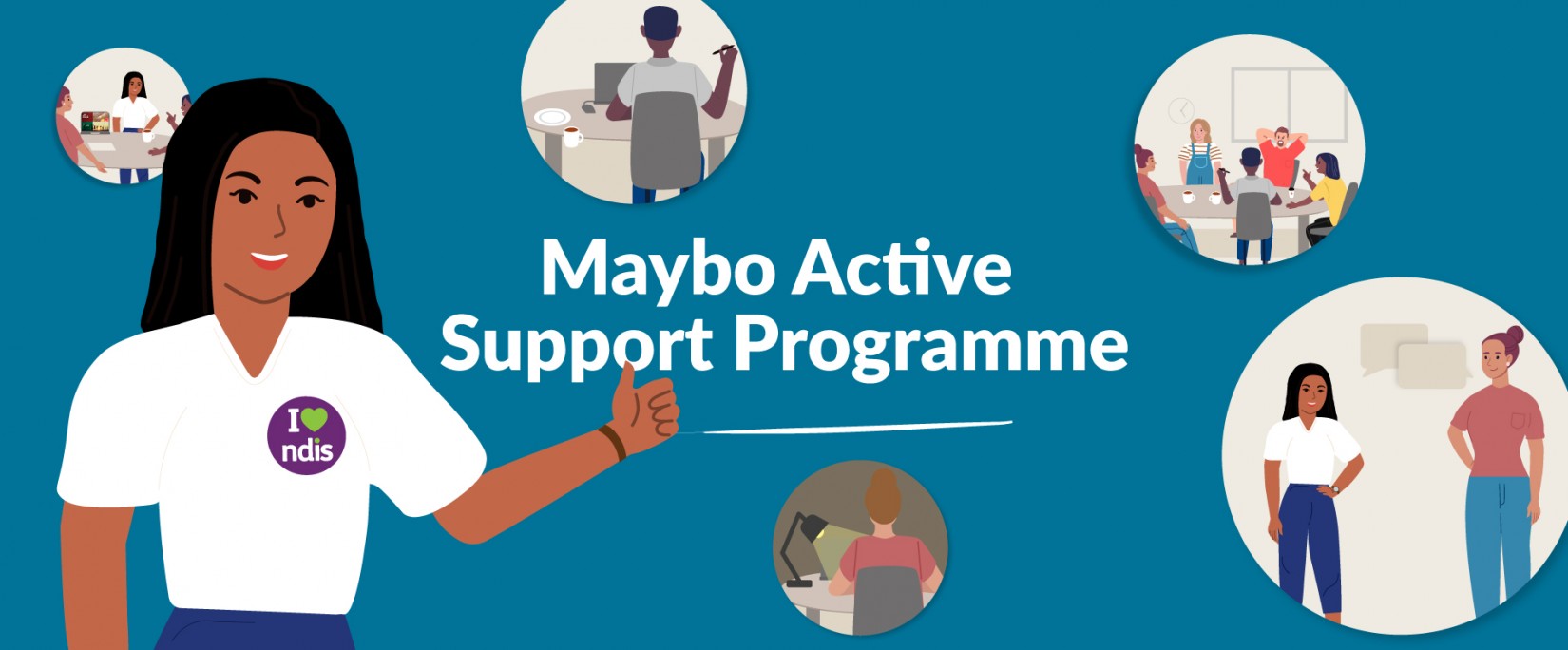Choose another country or region to
see content specific to your location

The flexible new learning programme that minimises off-site training for key workers, and that your staff can do whilst at work
We all know the pitfalls of training a busy team. Where does the time come from for staff to step away from work to do that all-important training? How do you help staff retain all the vital information from their training session?
At Maybo, we have come up with a whole new approach to training.
Active Support is our brand-new offering, boasting a tailored learning experience with a difference. We use a blended approach that not only reduces the time that staff are taken away from the front line but also adopts a ‘little and often’ learning method, where shorter repetitive bursts increase the likelihood of knowledge retention.
Additionally, it supports the reduction of restrictive practices, includes Positive Behaviour Support (PBS) and is mapped to NDIS Practice standards.
“Active Support gives staff the tools and resources needed not only to meet their client's individual needs but, more importantly, to empower people with disabilities to live their best life.” Joel Guest, Maybo trainer.
This little and often approach is a move away from the lengthy, classroom-based courses where temporary workers take over from staff, which can be challenging and costly. Additionally, it has been proven that your staff will only retain 25% of what they are told in their training session.
How is this achieved?
In a nutshell, key personnel are given access to our award-winning eLearning and online resources, followed by our five-day training programme. The first two days are focused on Promoting Human Rights and Reducing Restrictive Practices, Positive Behaviour Support, and Positive Approaches to Behaviour & Safer De-escalation. The rest of the time is spent covering safer low-arousal physical skills.
How does this info then get passed onto frontline staff? This is where the ‘little and often’ kicks in. Staff receive bitesize skills-embedding sessions from either key personnel or via Maybo’s on-training library resources and e-handbooks. These short chunks of time can be achieved during a night shift, group meeting, lunch break or team huddle, causing minimal disruption to their day jobs.
“Our clients tell us one of the biggest benefits to Active Support is getting a sound understanding of Positive Behaviour Support, Safer De-escalation, and Restraint Reduction, which means staff can ensure that they uphold participants' human rights.” Andy Barrett, Training and Customer Service Manager.
The outcome? Training that works on many levels. Let’s recap the key benefits:
Highly effective at getting your whole team on the same page through engaging eLearning and online resources.
Our ‘little and often’ approach reduces description, improves learning performance and embeds a culture of ongoing skills building.
Includes Positive Behaviour Support, promotes human rights and endorses the reduction of restrictive practices.
It’s aligned to the relevant NDIS Practice Standards.
Want to learn more about our Active Support programme? Take a look at our 3-minute explain-all animation
If you would like to discuss how we can help you please get in touch with one of our experts today